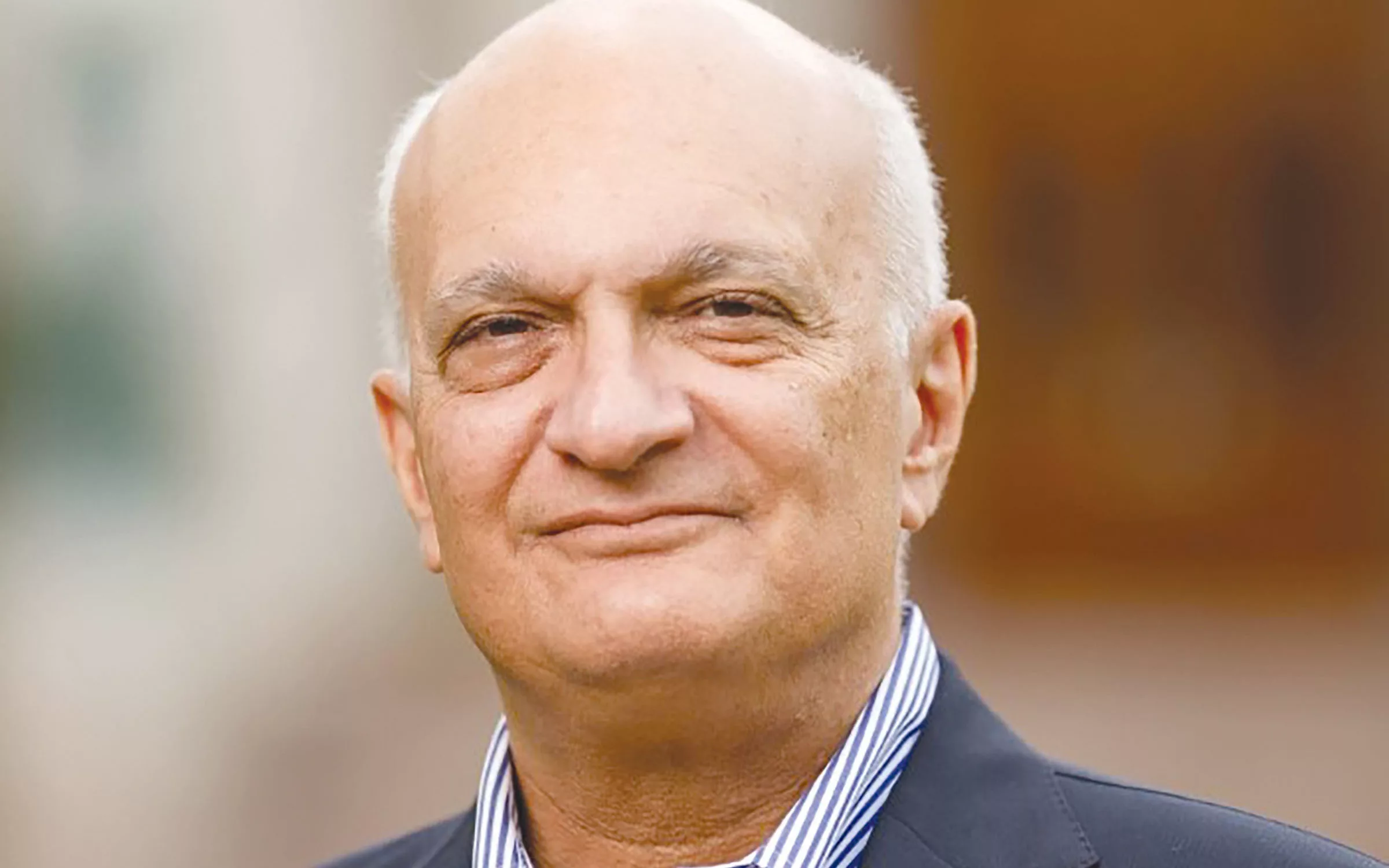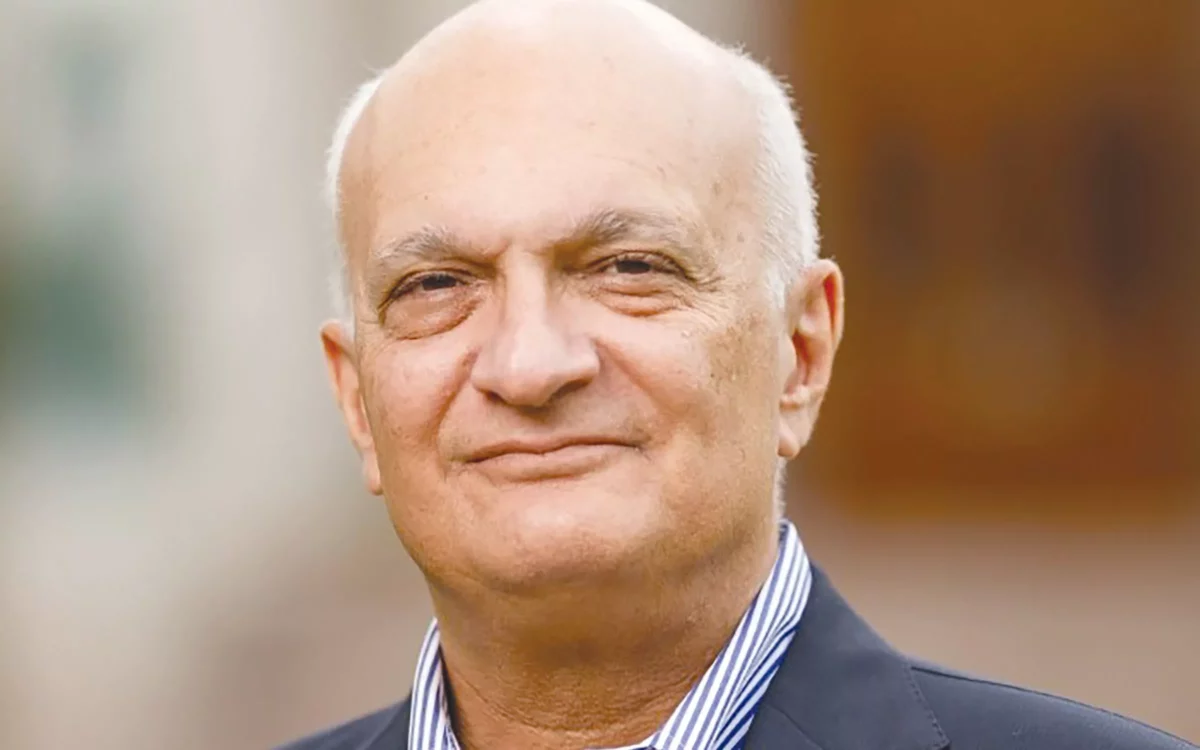
The Seaside Institute names Michael Lykoudis as its 2020 Seaside Prize Winner
By Scott Merrill / Seaside Prize Chair
Michael Lykoudis, the Francis and Kathleen Rooney Dean of Notre Dame’s School of Architecture, has spent his entire 29-year tenure at the school honoring other people. He is an intuitionalist, and a singularly magnanimous person.
In giving him the 2020 Seaside Prize, the board of the Seaside Institute is pleased to honor Lykoudis, not only for his contributions to education, and for his outstanding stewardship of the school, but also for the ties that have emerged during his deanship between the school and the town of Seaside.
On the Prize weekend, Lykoudis will be surrounded by speakers and audience members who have been mentors, fellow teachers, colleagues, students and lifelong friends. The keynote address will be given on Friday by Michael Dennis. Saturday, John Torti, Marianne Cusato, Barbara Littenberg, and Lykoudis, himself, will speak on different topics related to architectural education.
Lykoudis, who was born in 1954, recently wrote about his youth and his education, and characteristically, he described it in terms of big events he had witnessed.
“I remember my grandmother holding me on the sill of our diminutive neoclassical house in the Koukaki district of Athens when I was about two … she pointed to the war-torn facades across the street and said, ‘We will build a new city, a better city, a place where you will be safe and these horrors (of the war) will never happen again.’
“A few years later,” he said, “our house was demolished and a new non-descript apartment building went up, a scene that was to be repeated over and over in this charming 19th century capital, until the city that had existed, was no longer. The barbarism of that destruction is still embedded in my psyche.”
His mother came to the United States and studied archeology at Radcliffe, and his father studied aeronautical engineering at Purdue. Lykoudis points out that one was interested in the past and one in the future and that this would shape the way he looked at the world. After the military coup of 1967, his parents were barred from returning to Greece until two Indiana senators intervened to allow them to return to care for Lykoudis’ grandmother.
He started spending his summers there and he describes the order of a typical day — grocers, fishmongers, bakers, ice cream in the café, a playground in the square, toy sailboats in the park on Sunday, car trips to the countryside. He said Athens was a textbook about how to think of life and what he would later value the most.
Before becoming head of the school, Lykoudis was director of undergraduate studies. For 10 years in this capacity, he helped the chair of the program, Thomas Gordon Smith, develop a new curriculum based on traditional and classical architecture and urbanism. He rose to assistant chair, associate chair, and chair of the program, later becoming the school’s first dean in 2004.
It is easy enough to see how his childhood in Athens might have formed his interests as an administrator. He helped develop the University’s Real Estate Initiative that sought to reconcile development and urban design. He helped the school work with the city of South Bend, whose challenges have been highlighted so much this year.
He developed the annual Driehaus Prize, which over its 20 years has stressed how broad and accommodating traditional and classical architecture and urbanism can be.
Taken together, what do these accomplishments say about Lykoudis?
He said of Seaside recently that its genius is its pluralism and the heterogeneity of its architecture, and the fact that its urbanism allows it to cohere despite the very different approaches taken by the owners and the architects who build here.
Of course, people pledge their support for pluralism all the time. Lykoudis means it and he practices it. He sees the full range of architecture as its great strength, and he sees the relative impoverishment of architecture when it is construed too narrowly.
This is an essential quality in a dean. He brings what he describes as Seaside’s genius to bear on how he has steered the school. He is the steward for an institution that existed before him and that will carry on after him. It’s obvious that he has helped shape the school, but it is equally obvious that he has encouraged innumerable initiatives within the school that will succeed him.
He has had the privilege to direct a school that stands for something discernible, but that is still big enough and elastic enough to acknowledge a range of different interests. It’s obvious, then, why he might describe Seaside the way he does, and why he might admire it.
Lykoudis thinks effectively at different scales. The school teaches classical and traditional architecture and it teaches traditional urbanism. He can hold forth on the expressiveness of the details of the classical orders, but he also thinks at the scale of streets and blocks and neighborhoods and cities; at the scale of craftsmanship, but also at the scale of roads and settlement patterns and environmental impact.
He thinks high and low. The school teaches the classical orders and it teaches the vernacular. It teaches the highest and the best, and it teaches about what happens when a group of people, with different types of expertise, focus over generations on the recurring problems of building. And so it is natural that he would be attracted to the classicism that is reserved in Seaside for public buildings, and natural that he would admire the vernacular traditions from which Seaside houses draw so heavily.
As we all obsess over the relative weight to give to the local and to the global, Lykoudis more or less ignores the hand wringing. Driehaus winners are selected by a jury each year but Lykoudis has fostered and overseen a process that has somehow found people all over the world who are reflecting universal human values through their local work.
This year’s Driehaus winner went to school in the United States and practices in Thailand. The prize has previously recognized an Egyptian architect who did a striking series of mosques in Jeddah, a Spanish architect who, like Spain, has blended North African and Mediterranean influences, a Miami couple of Cuban and Polish descent, who treat the Mediterranean and the Caribbean as two shores of the same sea, and a Luxembourg architect who has had such an outsized influence on his many American admirers in a small town in the Florida Panhandle.
Lykoudis is a teacher who understands that his success as a teacher will ultimately be judged far from his classroom and studio. Even though the University of Notre Dame owns enough open land to live in its own ecosystem, its future is inextricably linked to the future of the city in which it exists. South Bend still reels from the departure of Studebaker, where 26,000 people once worked, and in his initiatives with the city of South Bend, he stresses that ideas that may start in a lecture hall or on a screen or in a sketch pad, will ultimately be tested on the street, and in the passions of public hearings, and in the dispassionate logic of a ledger book.
You will find Notre Dame studios undertaking problems in Guatemala, Rome, Panama, Oman, London, Costa Rica, Havana, India or China. Lykoudis’ final studio as dean last fall was for a Greek Island ravaged by fire. But one of the most touching things about serving on a jury at Notre Dame is seeing student projects addressing intractable problems in their own home towns all over the country. That wish to serve and to repair places we love suffuses the school Lykoudis has ably helped manage for so long.
Lykoudis can juggle several different time horizons at once. Most of us get up each day and dutifully tackle things in our inbox and return the most urgent calls. As a teacher, he encourages us to pull our head out of the muck every once in a while, survey the field, and take the long view. And like his parents, the archaeologist and the aeronautical engineer, he is capable of looking both forward and backward.
It’s pretty apparent that Lykoudis benefitted from the way he was raised, but it is equally clear that those of us who have lived in Lykoudis’ orbit, and who are so fond of him, and so indebted to him, have benefited from it too. Incomprehensively big events have impressed themselves on him. He has assimilated those events, and somehow made constructive sense of them, and they work outward from him in many small ways that we can all easily understand.
His modesty probably comes from a sense that our individual efforts are puny compared to the big forces that present themselves to us. His belief in friendships and institutions probably comes from an equally strong sense that with our collective efforts we can push back with equal or greater force.



